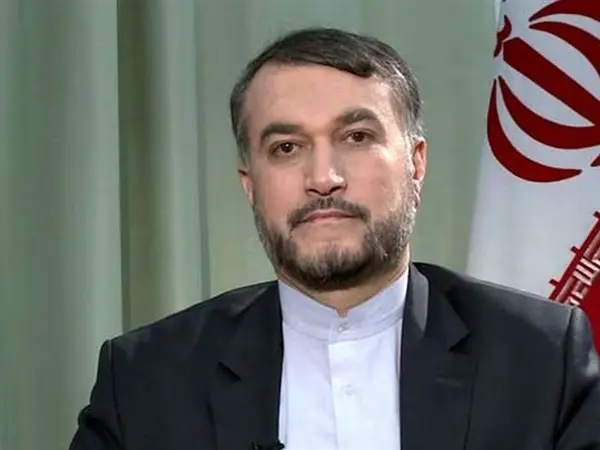Iranian Foreign Minister Hossein Amir-Abdollahian said Sunday that relations with Asian countries should not mean ignoring relations with the West altogether.
Speaking to the Iranian Students News Agency (ISNA) after completion of his tour of Moscow, Beirut and Damascus, Amir-Abdollahian said "a balanced foreign policy" means following "active diplomacy with East and West" adding that Iran does not want to "tie the country to Russia and China" and would only follow its national interests.
As Iran has been holding talks in Vienna with the United States and its three European allies, the United Kingdom, France and Germany on reviving the 2015 nuclear agreement (JCPOA), its rhetoric of strengthening ties with China and Russia has intensified.
Amir-Abdollahian said Iran has made it clear to the European countries that following US policies and failing to honor their commitments against Iran will damage their own interests and keep them away from investment opportunities and trade with Iran. "We have told them that Iran's hand will not remain tied."
During his Moscow visit Amir Abdollahian said the government of President Ebrahim Raisi was ready to quickly expand ties with Russia. "This doesn’t mean that we’ll be dependent on China and Russia, but from a strategic point of view, we’ll use existing capacities to further the interests of both nations,” Amir Abdollahian said.
Before his confirmation by the parliament in August, Amir-Abdollahian said negotiating with the US was not a taboo and that he had three times engaged in direct talks with Americans in Baghdad.
Nevertheless, the Vienna talks to restore the JCPOA which he has pledged to continue until "all sanctions on Iran are lifted", have been in limbo since June. Iran has made repeated promises of returning to the negotiating table "soon" without setting a concrete date.
Pundits believe Iran is buying time to build more leverage before returning to the talks. On Sunday Iran's nuclear chief, Mohammad Eslami, announced that stockpiles of 20-percent enriched uranium have reached 120kg, a third more than previous estimates.
Tehran has ‘looked east’ in expanding cooperation with Russia and particularly with China to fill the vacuum left in its oil and gas projects by European companies and selling its crude oil. The new hardline president Ebrahim Raisi’s government has also invested much hope in its newly accepted full membership in the Shanghai Cooperation Organization (SCO) to boost its ailing economy.
The policy of relying on Asia or the East, particularly China and Russia, was promulgated by Supreme Leader Ali Khamenei in 2018, with the catchphrase, “Looking East”. Since then, his hardliner followers have made it one of the centerpieces of a ‘revolutionary economy’. In a speech on February 13, Khamenei reiterated that in resisting "US unilateralism," Iran should look to the east to achieve a "resistance economy" that could withstand US economic pressures.
President Ebrahim Raisi has stressed that his policy is to deepen ties with China and Russia.
His hardliner supporters, who accused the Rouhani government of giving importance only to relations with Western countries, claim China has been assisting Iran to dodge US sanctions and buying Iranian oil through back channels and not even declaring it in their customs reports.
However, close relations with China and Russia have not been the magic wand for Iran’s economy during three years of US sanctions. Overall trade is relatively small and there have been no notable investments to compensate for the absence of Western businesses.
